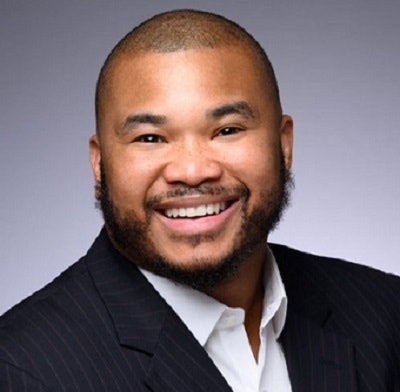 Dr. Adriel A. Hilton
Dr. Adriel A. HiltonAccording to the U.S. Department of Health and Human Services (HHS) (2018), approximately 50% of the 443,000 youth in the foster care system are children of color. HHS also notes that leading causes for youth entering foster care are neglect/inability of a caregiver to cope, parental drug abuse, and physical abuse. Over 20,000 youth annually age out of the foster care system nationally and in our Commonwealth of Pennsylvania (PA), 1,100 age out each year. The term “aging out” refers to youth who are still in the foster care system upon reaching the age of majority.
As noted by the Pennsylvania State Resource Family Association ,“one in four PA youth who age out of the system, experience homelessness, struggle with mental health challenges such as depression, substance abuse and anxiety disorders, with nearly 1 in 4 youth having been arrested since leaving care.” Additionally, “Nearly half of PA foster care youth haven’t found a job four years after leaving the system and struggle to pay bills.” In addition, the National Working Group on Foster Care and Education (2014) , found that only 20% of foster care youth attend college and less than 10% of those who matriculate actually graduate with a bachelor’s degree. These facts provide proof that more assistance is needed to guide foster care youth towards college completion and improved lifelong outcomes.
While programs like the Seita Scholars Program at Western Michigan University are the gold standard for higher education foster care support program, we would like to feature a program in our backyard. Kutztown University’s Providing Resources and Opportunities for Future Standouts (PROFS) program was founded in 2017 with the generous support of Child Promise. The vision of PROFS is to be the premier program on the east coast to assist foster care youth in college completion. According to Dr. Warren Hilton, Vice President for Enrollment Management and Student Affairs, “PROFS provides college access programs and services for high school students in the foster care system as well as retention programs for Kutztown University students who have experienced foster care system even if for only one day.”
With regards to college access, PROFS provides college prep and financial literacy workshops to high school students. For Kutztown University students in the PROFS Program, the benefits and support mirror that of a supportive parent.
 Dr. Ronald W. Whitaker II
Dr. Ronald W. Whitaker II“Our students receive mentoring from graduate assistants via one-on-one weekly meetings” says Susan Mangold, Assistant Dean for Student Assistance and point of contact for the PROFS Program. Additional benefits include cultural activities, year-round housing, paid study abroad experiences and more. Joanna Suriel and Nicole Generose, graduate assistants for the PROFS Program note “it is the little things that matter…our students receive $500 at the end of each semester to help them with food and other needs over winter and summer breaks, and during semester breaks we take them on fun trips, sometimes overnight, to the beach, to the African American History Museum in Washington DC, and the Pittsburgh Zoo.” The PROFS program since its inception has consistently maintained a retention rate higher than the national average. Additionally, two PROFS students graduated in 2018-2019 and four more are expected to graduate in 2020. Keichalies Ciuro Sanchez, a current PROFS student who is graduating in 2021 with a degree in social media theory and strategy says the program “helped me navigate the process, from financial aid to weekly meetings with my graduate student mentor that keep me on track. Everything is covered: accommodations over breaks, financial awards for incidentals; and they even paid for me to study abroad twice!” She is grateful that staff from PROFS reached out to her when she was in high school and states that “without the program, I don’t know what I’d be doing right now.” According to the statistics, without programs like the Seita Scholars and PROFS she and other foster care youth in college would not have a bright future.
We close this essay, by articulating a core tenet of Improvement Inquiry, and that is, “Every system is perfectly designed to deliver the results that it produces.” Specifically, we have to interrogate and dismantle systems that continue to push youth out of the promises of the 21st century. As we also noted in this essay, many of the youth in the foster care system are minoritized (Khalifa, 2018) and already deemed as “nobody’s” in society (Hill, 2016). To that end, we strongly assert that institutions of higher education, should model the exemplar programs that we highlighted in this composition. In doing so, not only could institutions experience a surge in their diversity and graduation rates, but also most importantly, through a social justice lens, these institutions would be playing a major role in shifting the generational narrative of youth that need advocates and allies.
Dr. Ronald W. Whitaker II is the culturally responsive assistant professor of education and assistant dean of the School of Education at Cabrini University.
Dr. Adriel A. Hilton is the dean of students and diversity officer at Seton Hill University.


















